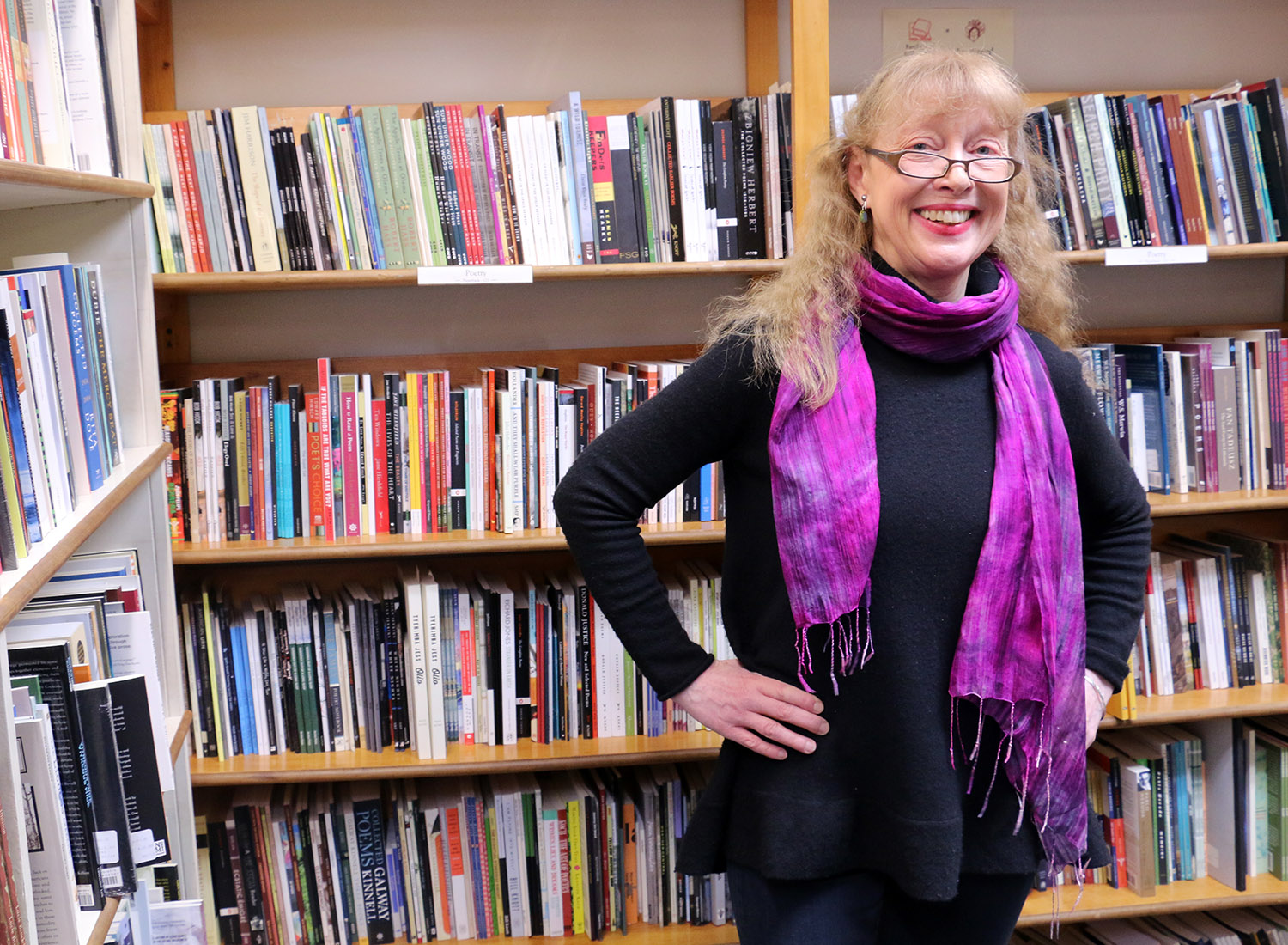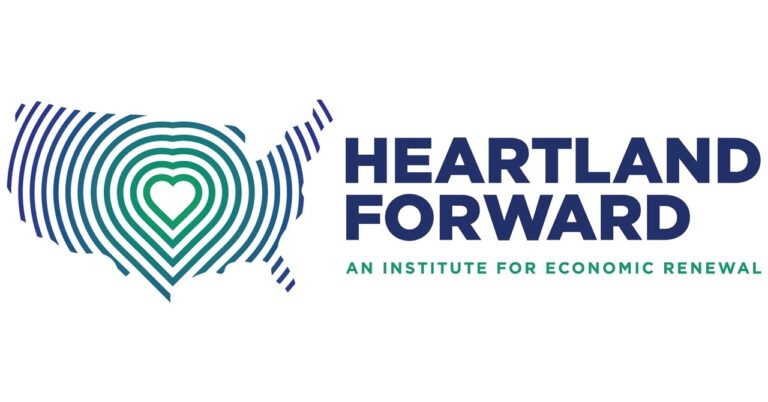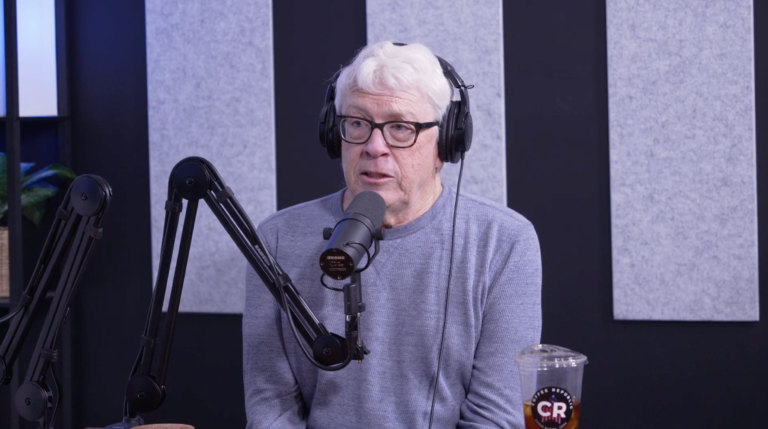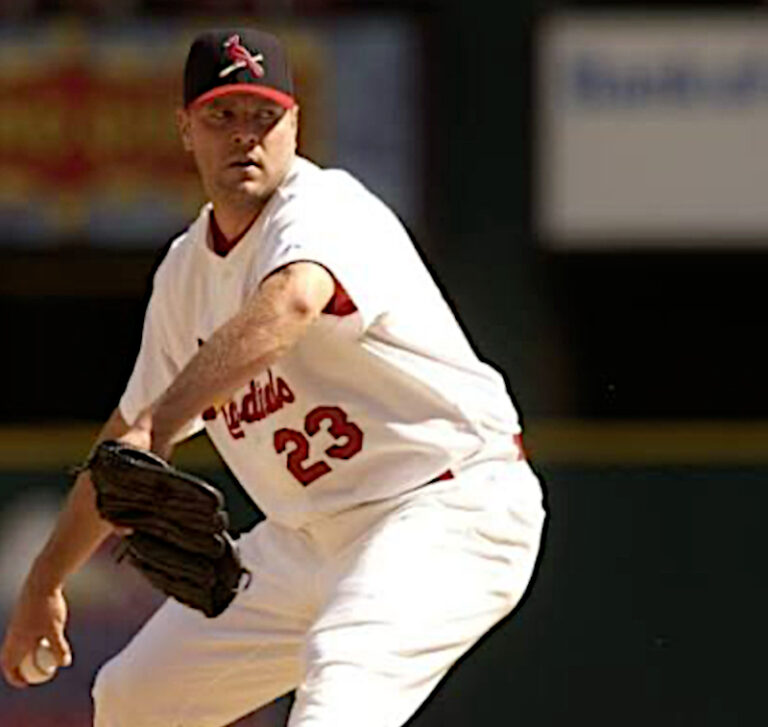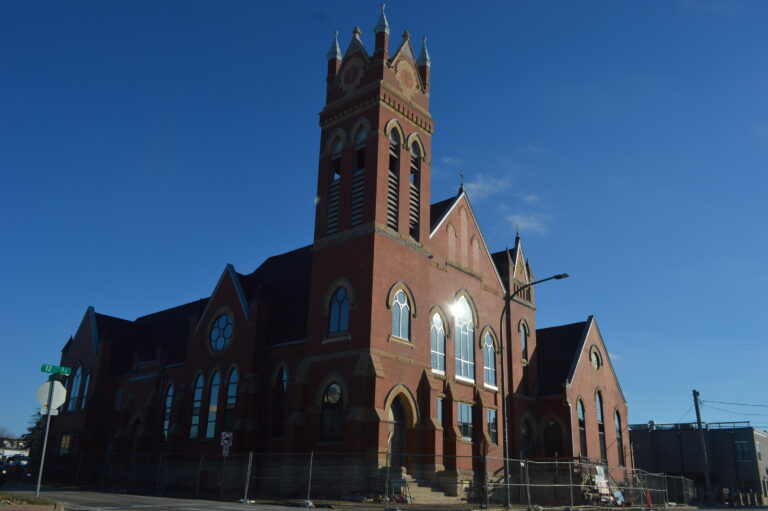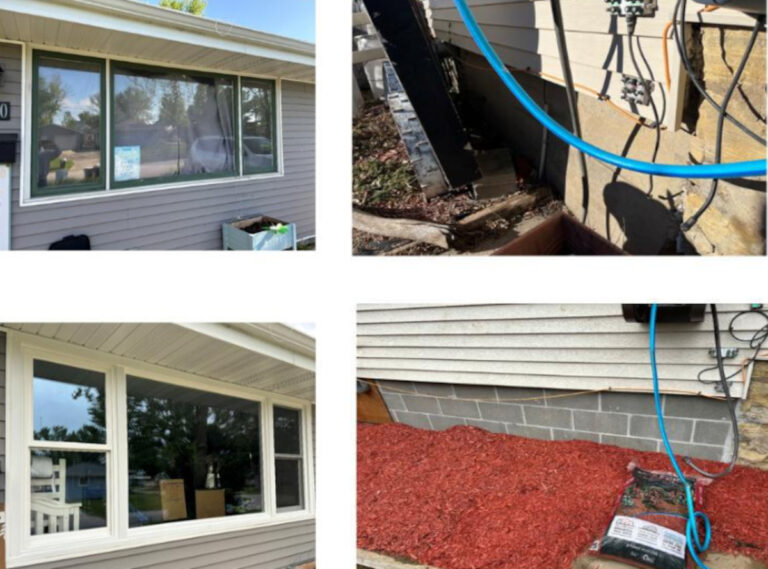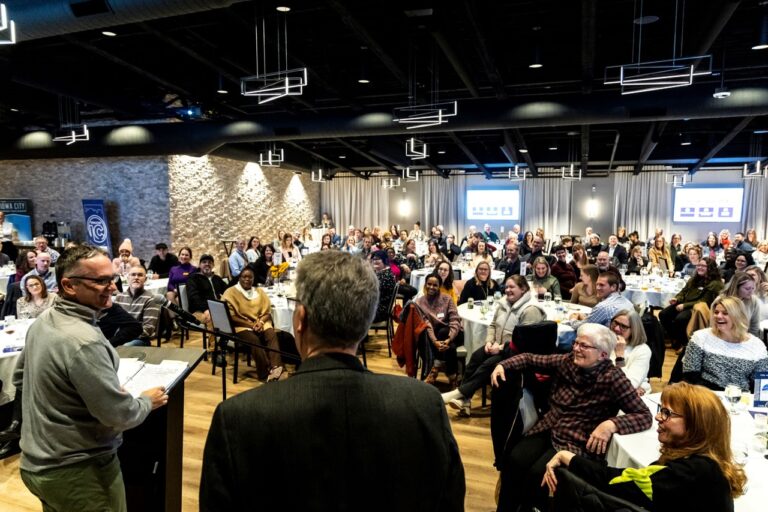Prairie Lights’ Jan Weissmiller stands among the stacks at Prairie Lights Books in downtown Iowa City following a podcast recording session at MERGE. PHOTO ADAM MOORE
Sponsored by MidWestOne Bank, this is the latest edition of the CBJ’s new podcast feature with Nate Kaeding and notable Iowa business and cultural leaders, available first to CBJ members. Listen to this episode below, and subscribe on Spotify, iTunes, Google Play and SoundCloud.
By Nate Kaeding
[email protected]
Jan Weissmiller knows a good story when she sees one. As the co-owner and proprietor of Iowa City’s beloved Prairie Lights bookstore, she’s built a career out of curating tales that captivate readers. Of all the genres she sells, the underdog story is always a crowd favorite — and it’s one that she and her staff are living out every day.
Ms. Weissmiller isn’t claiming total victory over the likes of Barnes & Noble and Amazon, but she, along with hundreds of other independent bookstore owners across the United States, is holding her own. Today, independents are experiencing a resurgence few could have predicted 20 years ago. According to the American Booksellers Association, the number of book shops has risen nearly 50 percent since 2009, while hard copy sales have grown every year since 2013.
Hers is also an unlikely story — the MFA grad and poet turned successful small business owner. Ms. Weissmiller sat down with me to reflect back on both her professional and personal growth, and how she’s led Prairie Lights through several challenging cycles of disruption.
NK: You’ve been at Prairie Lights for most of your professional career. How did you and the store meet each other?
JW: I got an MFA here [at the University of Iowa] in the mid-‘80s in poetry. I actually got a BA here in history and English, but in the last year of my BA, I had taken classes in creative writing, and I decided that was the way I was going to go. So, I was working for [founder] Jim Harris. Prairie Lights was fairly new then, and I was his first full-time employee when I was 22. What year was this in? 1979. I didn’t start the Writers’ Workshop until about ‘82. In the meantime, I met my husband in the bookstore.
You met your husband at the store?
In Prairie Lights, yeah. He was young and had just gotten a job at the university teaching in the Art Department — he’s a painter — so I knew that after I got my MFA and we were married that I was probably not leaving Iowa City. So I just went back to work at Prairie Lights.
Those were the years that we really grew a lot. It moved from its initial location on Linn Street. It was where Baroncini is [104 S. Linn St.], and it was the same size … I think it was probably 1,000 square feet. And then in 1980, we knocked out a wall and moved to the corner, so it was like twice the size before we left Linn Street, and then in 1983 there was a fire. So when that building was being rebuilt, Jim came over here [to Prairie Lights’ current location]. Until 1990, we only had the first floor, and then in 1990 we extended it to the upstairs, and in 1993 we added the café and redid the basement for kids’ books.
We started the reading series as it is now — or sort of as it is now — in 1990. That was when publishers started touring. Before that, they didn’t tour writers.
Jim talked to Dennis Reese at WSUI, and they were broadcasted for 18 years live over public radio. And then in 2008, the radio station stopped basically doing any local programming — I think “Talk of Iowa” is the only local program now — so we just started streaming them live over the internet and calling them “Live from Prairie Lights.”
So you went from the original store with 1,000 square feet and moved a couple blocks over, built that entire space out, and built a partnership with public radio and live broadcasting. And then there’s some disruption …
The disruption was in other places because of Barnes & Noble and Borders, but that didn’t really happen in Iowa City — I think the Barnes & Noble here opened in ‘98 when Coral Ridge Mall opened. Coral Ridge did disrupt our business because it took so much other business away from the downtown, and people stopped shopping downtown.
Was it a 5 percent disruption, or 50 percent?
That was before I owned the store, but if I were to guess, I would say it was probably 20 percent. I think it was really significant. And then by the early 2000s, Amazon was a force.
Thinking about the advent of big-box discounters and Amazon, which one was a bigger disrupter?
Oh, Amazon, for sure, because we didn’t have a significant Barnes & Noble or Borders here. We were told that Borders was seriously looking at the Old Capitol Mall, but the structure wasn’t strong enough to support books on the second floor, so they couldn’t do it.
So, thank the architect and engineers for that one?
[Laughs] Yeah, yeah.
Just to dig a little bit more on Amazon, walk us through what that looked like. You hear about it, but when did you start getting the inkling that customers were getting their books elsewhere?
Well, I don’t think people generally had the internet until around 2000, which is bizarre to think about. … I would say that it probably wasn’t until 2003, 2004, that it started just being gut-wrenching. Everybody talked about it, everything you heard. They would walk into the store and say, “Why is it $25 here when it’s $17 on Amazon?”
Do you remember a particular season or moment when all of that came to a head? A dark spot when Amazon was really starting to get a foothold?
We bought the store from Jim in 2007, so I wasn’t looking at the [financial] books until then. So, in the course of our transition, when we were deciding whether we would buy it and I was looking at the books, I saw what had happened, because I could look back over 10 previous years. But being in there, I’m not sure that I could feel it in the same way, because Prairie Lights has always been pretty busy with walk-in traffic. You’d notice people talking about it, of course.
As someone who came up in the arts world, talk a bit about your transition into a business owner.
That’s kind of a hard thing to assess, you know. I was always pretty good at math — my employees think I’m excellent at math and I always say to them, “I paid attention in fourth grade,” because I’m fast with numbers, but I wasn’t a good calculus student. But actually, when I took the GRE [graduate school exam], I did as well in math as I did in English. So, I like thinking about numbers.
I think managing people has been … fun. I mean, I would say that it’s easier for me to do it than to not do it, because watching somebody else mess it up, you know… [laughs] But I have had an easy job, in terms of that, because I still have a lot of people working there that worked for Jim. We have altogether now 34 employees, including the staff in the café.
What would you consider your biggest strength as a business owner?
That’s hard for me to say. … In a business like Prairie Lights, our customers are very identified with the store. And so, they can get very upset if something [negative] happens to them there – it’s almost like in their family. And I think I’m really good at handling them when stuff like that happens.
I don’t know if you followed it, but we had … right after [President] Trump was inaugurated, we had an employee who burned the flag on the Ped Mall, and she was arrested — not because it’s illegal to burn the flag, but because it was illegal to start a fire on the Ped Mall. When she was arrested, her name was in the paper, people could look her up and see on social media where she worked.
So your business was thrown into that conversation?
Nationally. At first, I tried to ignore it, but it was not going away. And so I wrote a letter and put it on Facebook about the history of the Constitution, about freedom of speech and my own feelings. It was actually a very honest letter — it’s not something that I would do or have done.
If you were to go back to the beginning of your career at Prairie Lights and give yourself any sort of advice, what would that be?
Well, it’s hard to say, because one is always of two minds. There are moments when I’m at home and I think, “Why did I ever do this?” [Laughs] And then I would advise my younger self, “Don’t do it.” But there are other times — many times, like now — that it’s just great. But I am always trying to think of what the next thing should be to strengthen the store.
Thinking back to when Amazon was kind of getting a foothold in the mid-2000s, was there a turning point from when things were dark to when you started thinking again, “Hey, this is a business that could perhaps stand this test?”
Well, that’s when Jim wanted to sell it.
He said, “You figure it out.”
Yeah, and so, of course, once I decided to do it, Jane and I were excited. I want to make sure that you guys know that I have a partner who was in the workshop with me named Jane Mead and she’s in California. We’re really good friends, and she’s great in terms of … we have the same values, and so we’ve worked together really well.
The first thing we did was take over the café, because the café had been a Java House — actually the first Java House. And so when we took it over, obviously that was an income stream, and it has continued to be, so that was definitely a good thing.
And then the e-readers … I think the first Kindle was sold in 2010, and in 2011, 2012, the predictions were dire. You know, within five years printed books are going to be reduced by half or more. As soon as it was available, everybody wanted to try it. It was a new thing, and there was no reason to believe that it wouldn’t progress, but people got tired of it pretty fast. So that was just luck. … But then we started seeing the uptick as soon as 2014.
What do you attribute that to — the “localism” movement?
Yeah, yeah. And I’ve always walked a fine line with that. I don’t chastise people for buying online, although I do have a really funny story. I had this girl call me up who was a graduate student working with first-generation college students. She said, “Can I bring them over for a book club in your café? And can you guys give us coffee and cookies?” And I said, “Sure, what book would you like us to order?” And she said, “Oh, we bought the books on Amazon.”
So I said, “Let me get this straight — you bought the books on Amazon, and you want to bring them over to Prairie Lights, and you want us to reserve space in our café, and give you coffee and cookies?” And she said, “Yeah.” I said, “I’m just curious, why did you choose Prairie Lights?” And she said, “It’s such a cool space,” and I asked, “How do you think it supports itself?” And she didn’t know how. [Laughs]
So I said, “Well, why don’t you go back to your program director and tell her that you bought these books on Amazon, asked for free coffee and cookies and see what she thinks?” And the girl called me back and was like, “I am so sorry, after this we’ll always buy the books there,” and so forth.
But generally, you have to let people do what they’re going to do. There’s a lot of discussion among the industry about how much you have to educate your customers about shopping local, but I think you just have to let it play out. We’re all lucky in this community, in Iowa City and the Corridor, to have generally supportive and loyal customers. And now, all the news is that nobody can stand e-readers.
Rapid Fire Questions
What profession other than your own would you have liked to attempt?
Teaching
Do you have a business leader that you’ve looked up to?
I’m bad at knowing about the business world, but Tony Hsieh [founder, Zappos] is impressive.
Do you have a favorite podcast or TV show?
I don’t actually watch a lot of TV, but I love FilmScene. I love going to the movies.
If you had 30 extra minutes in each day, what would you do with it?
I should be going to the gym more, so that’ s probably what I would do.
How do you define success?
I think success is happiness. Human beings, generally, are happy when they’re giving back and getting their needs met, so, if you can balance those two things, you’ll be successful and happy.


